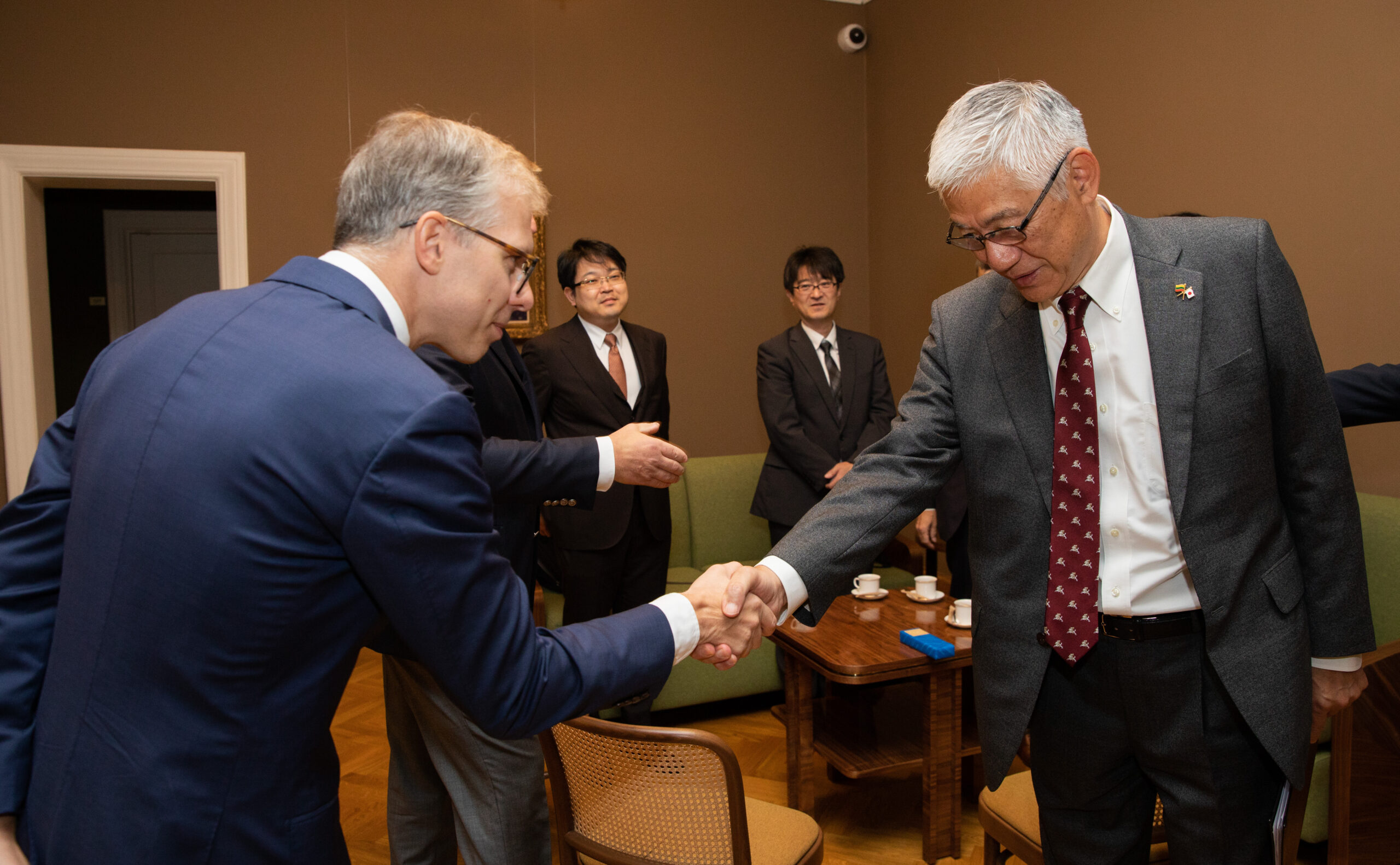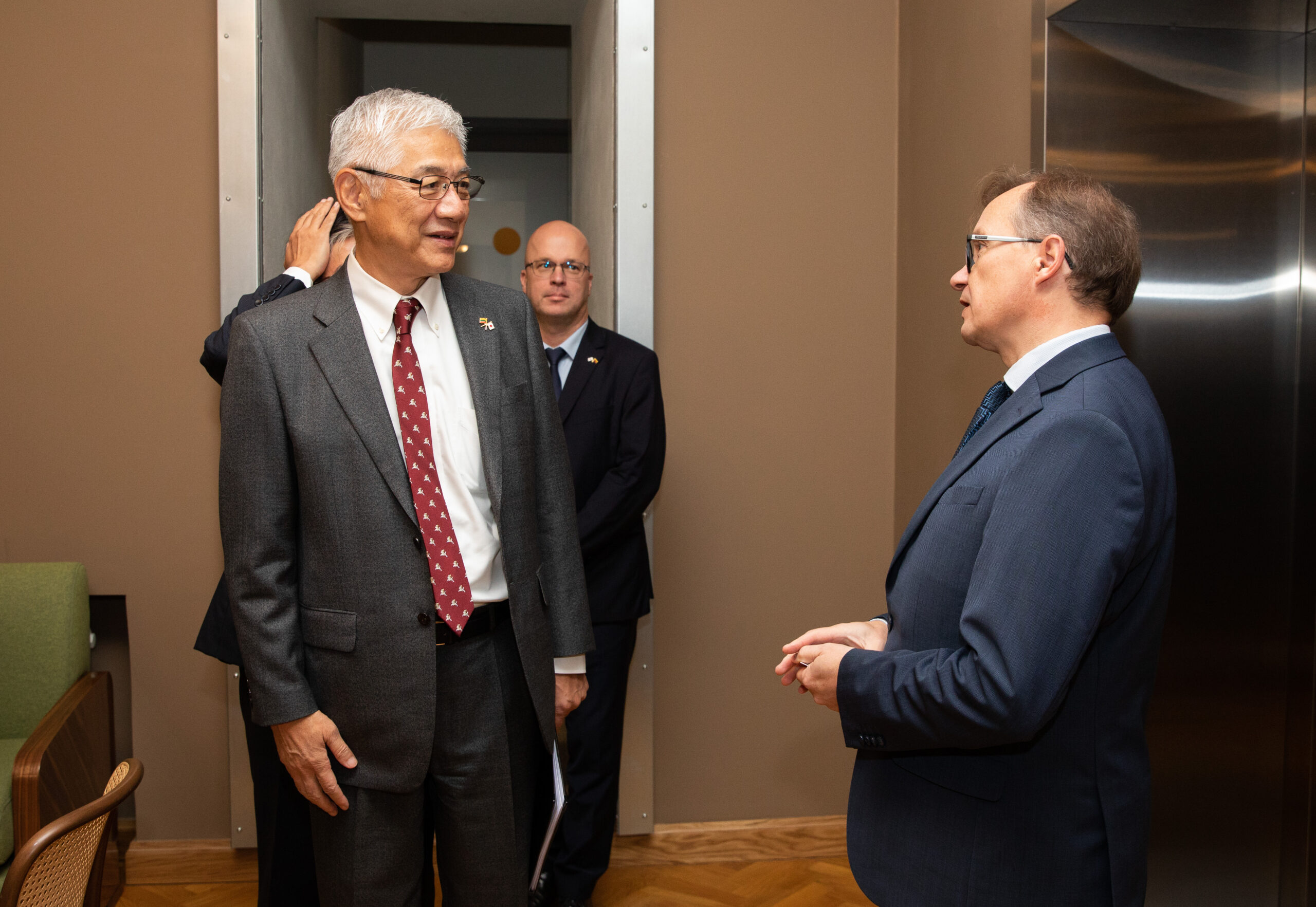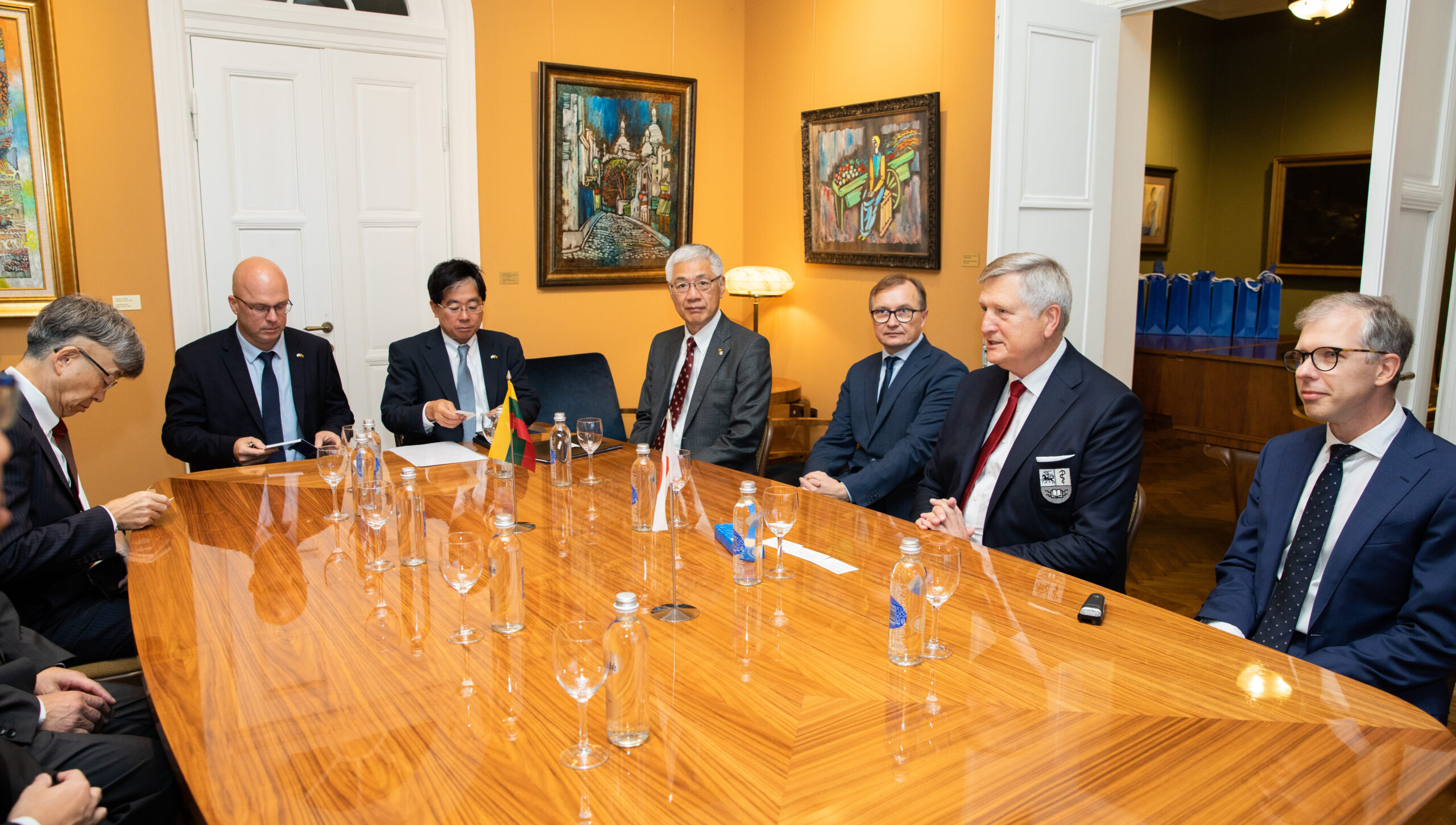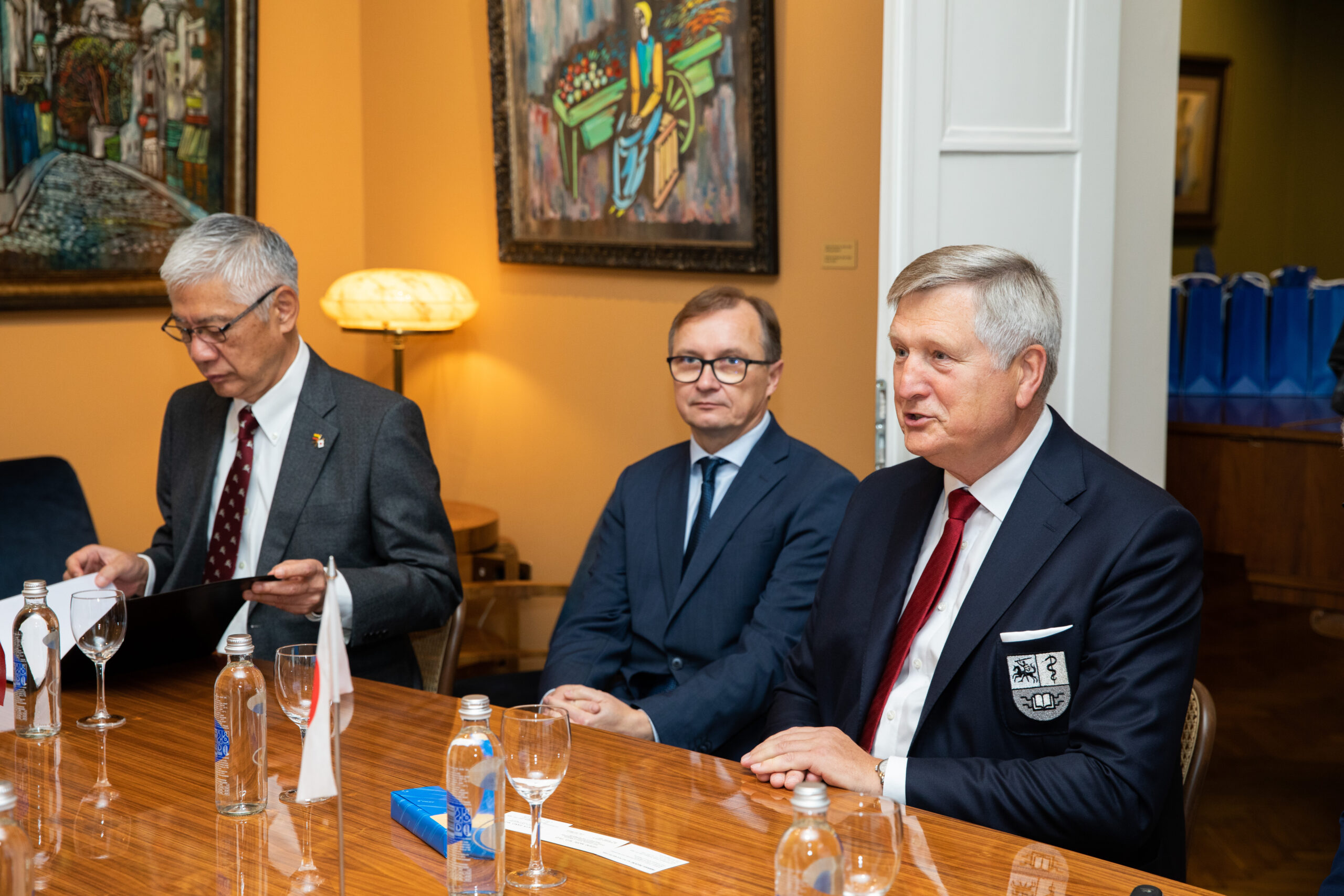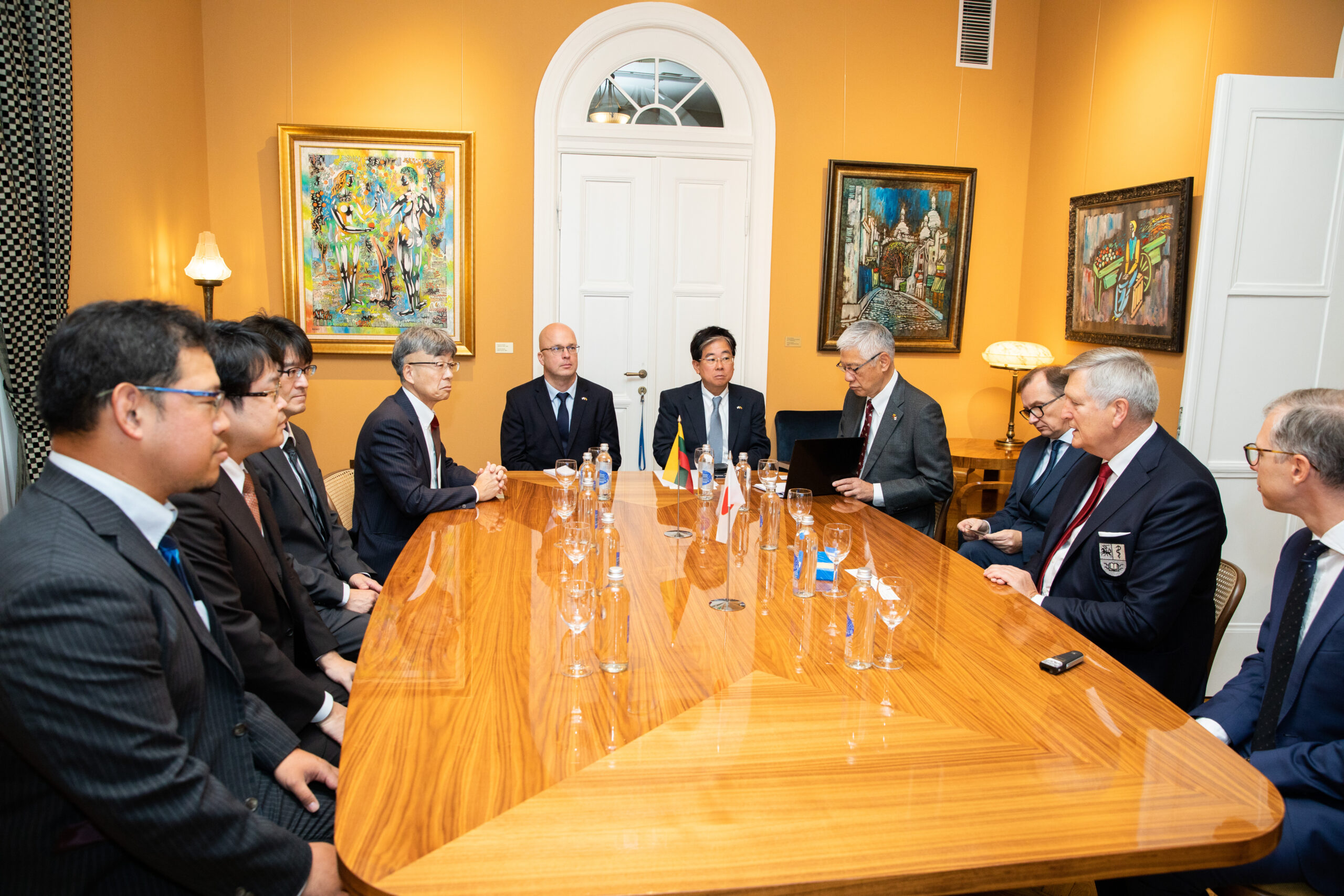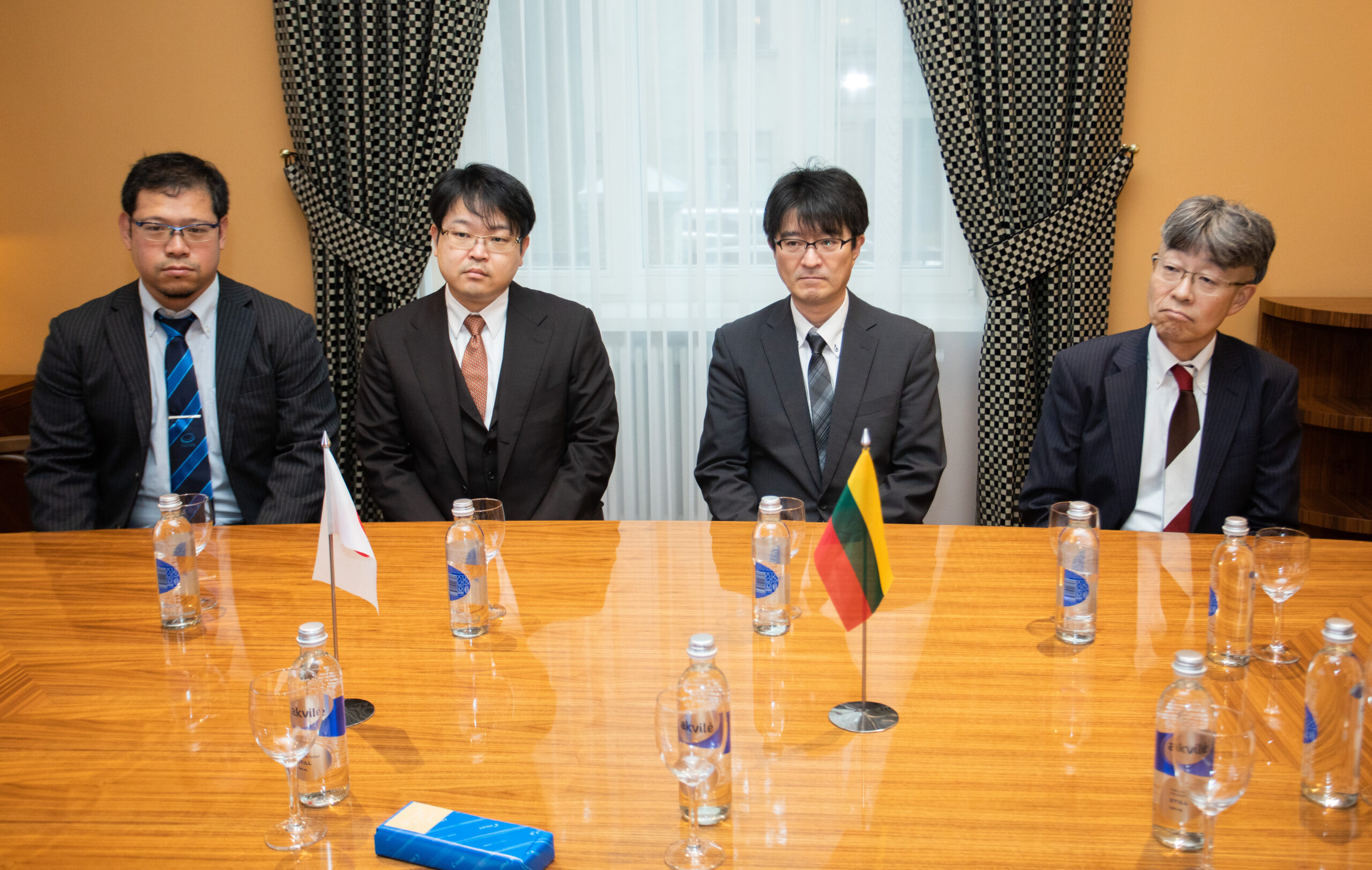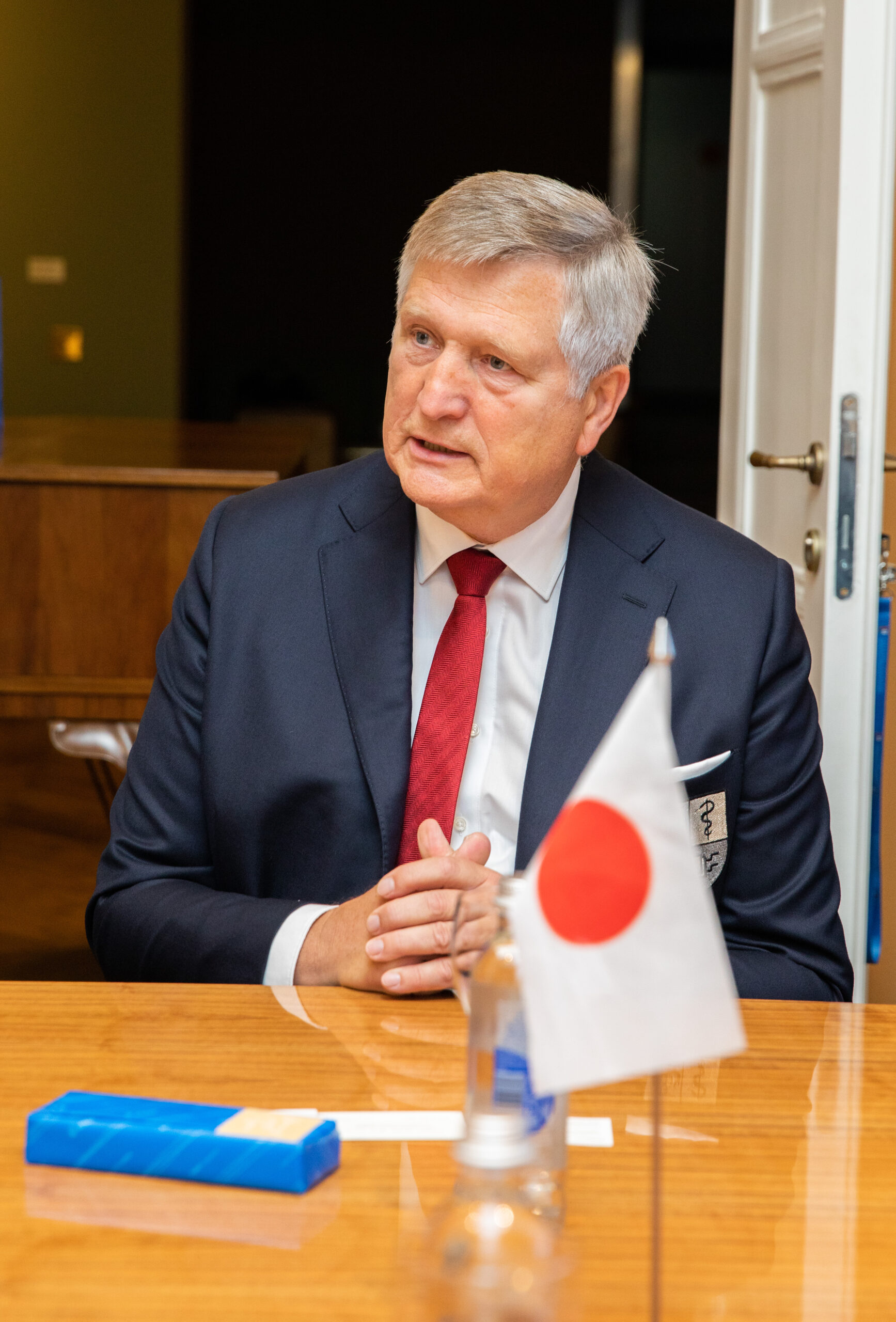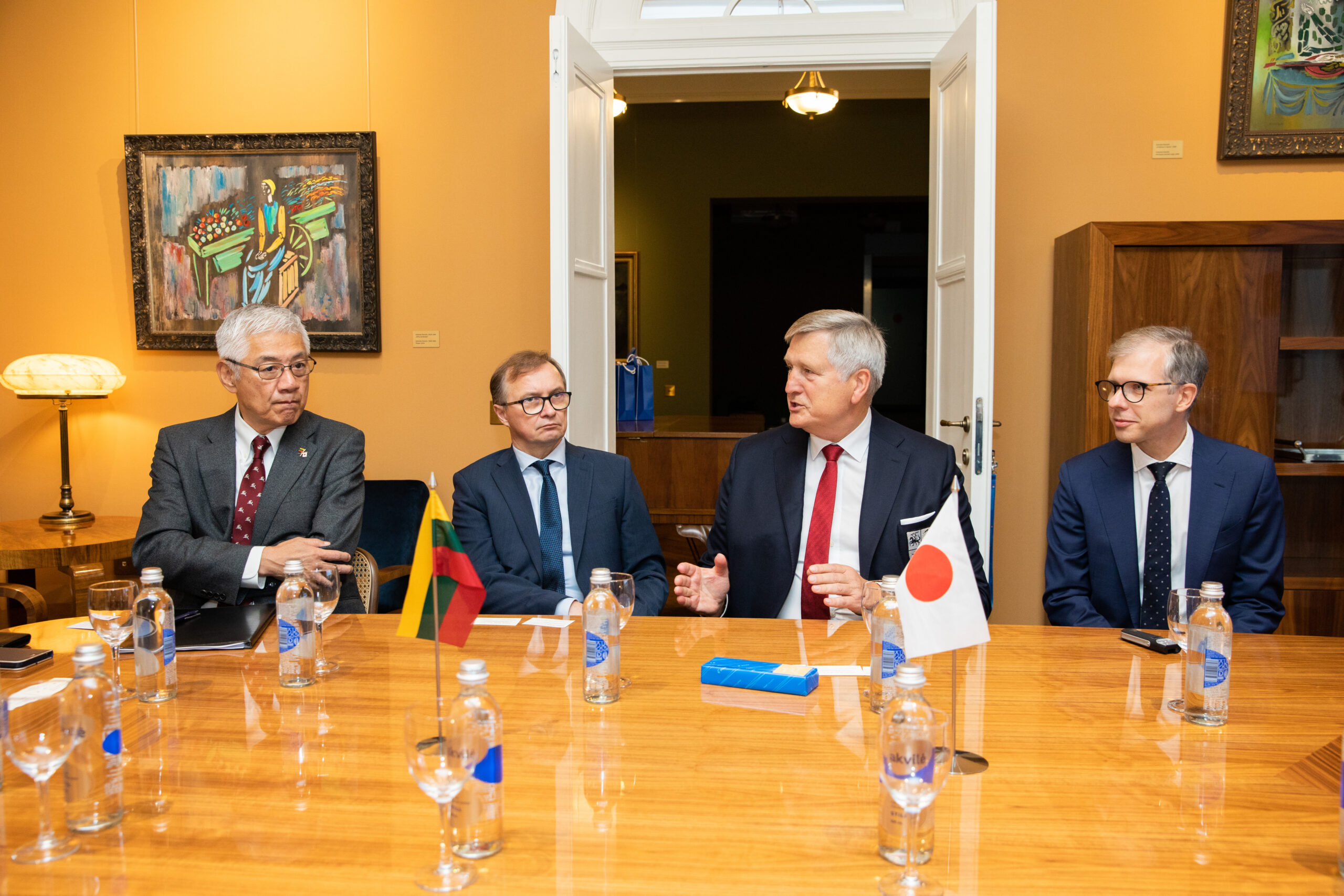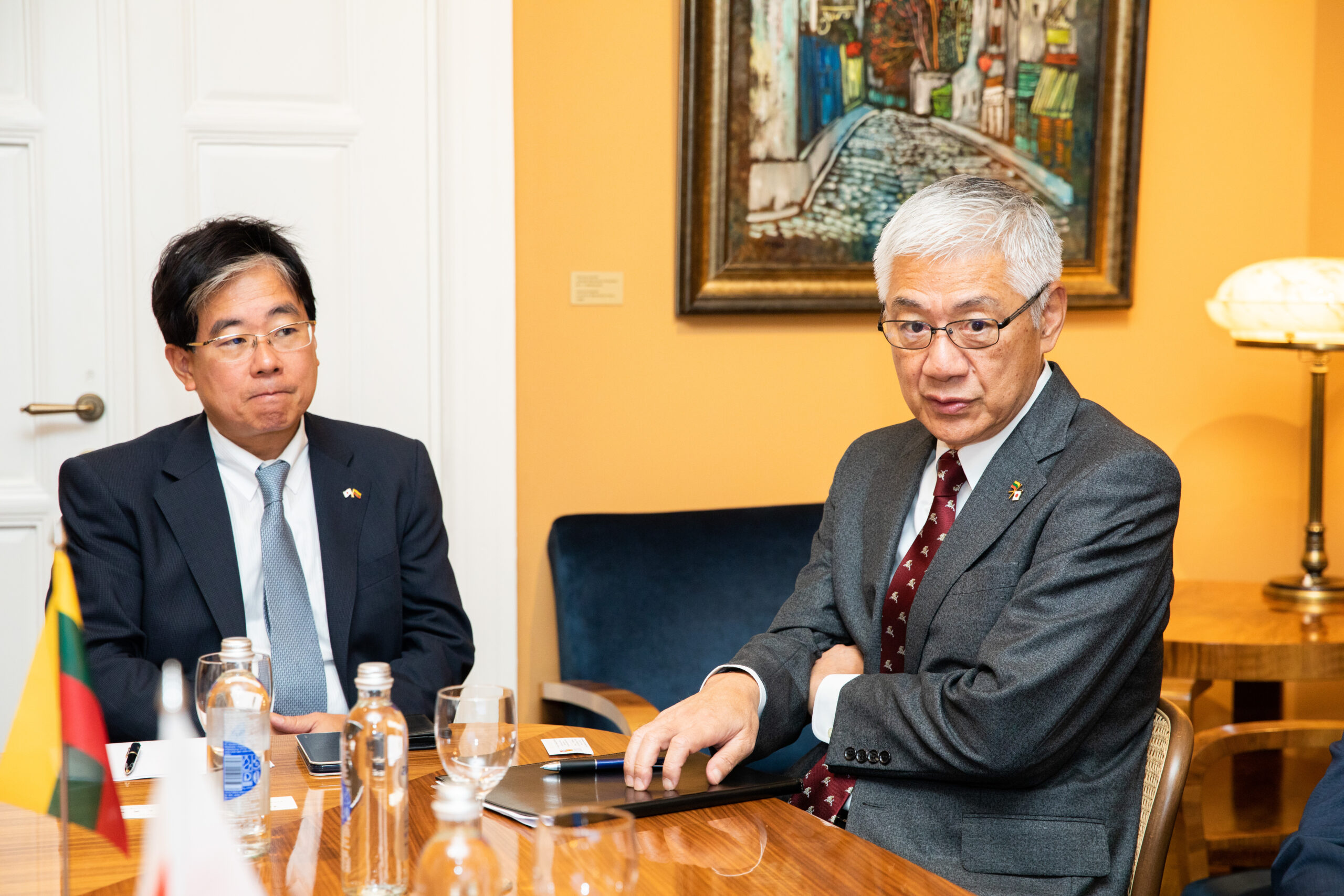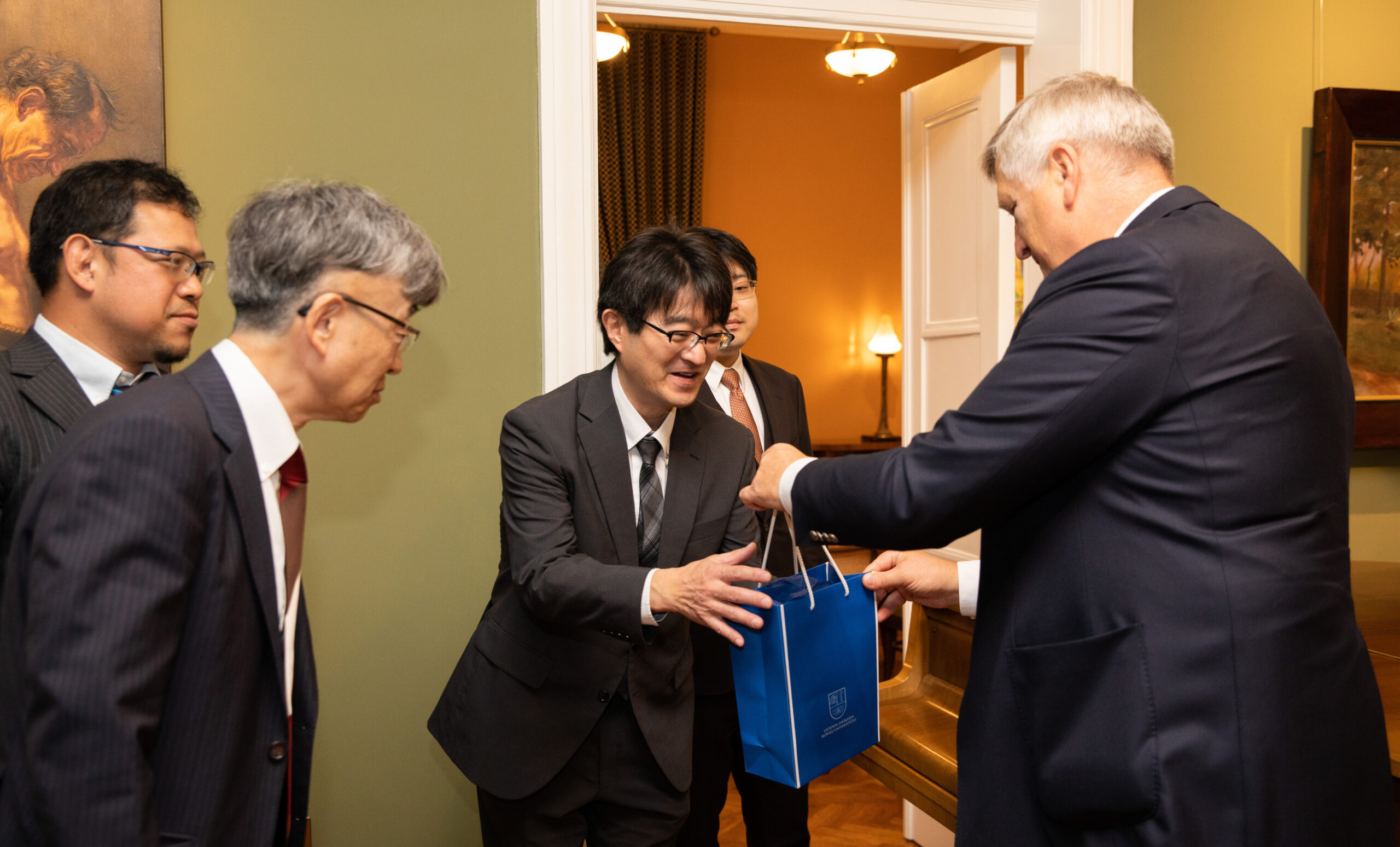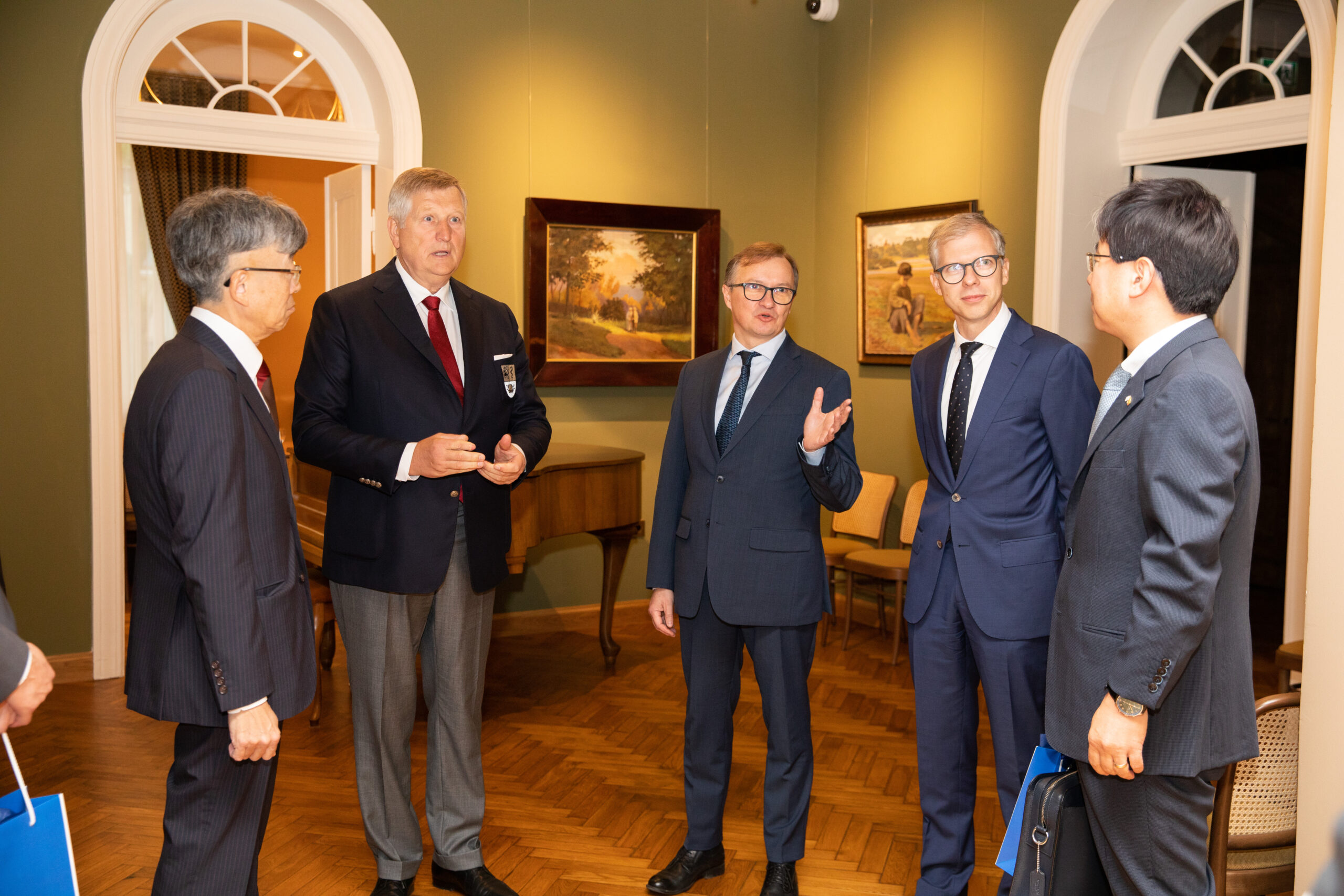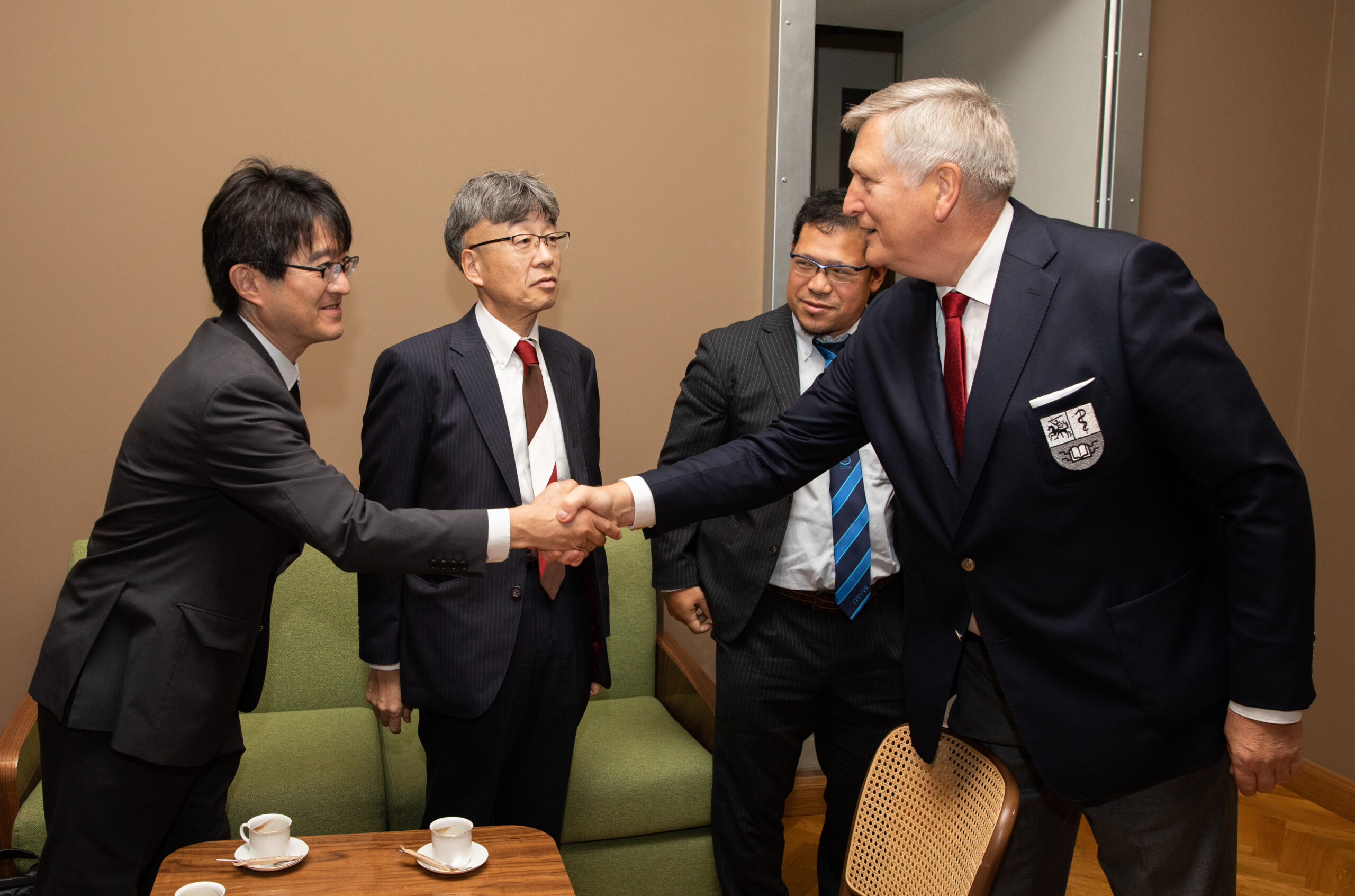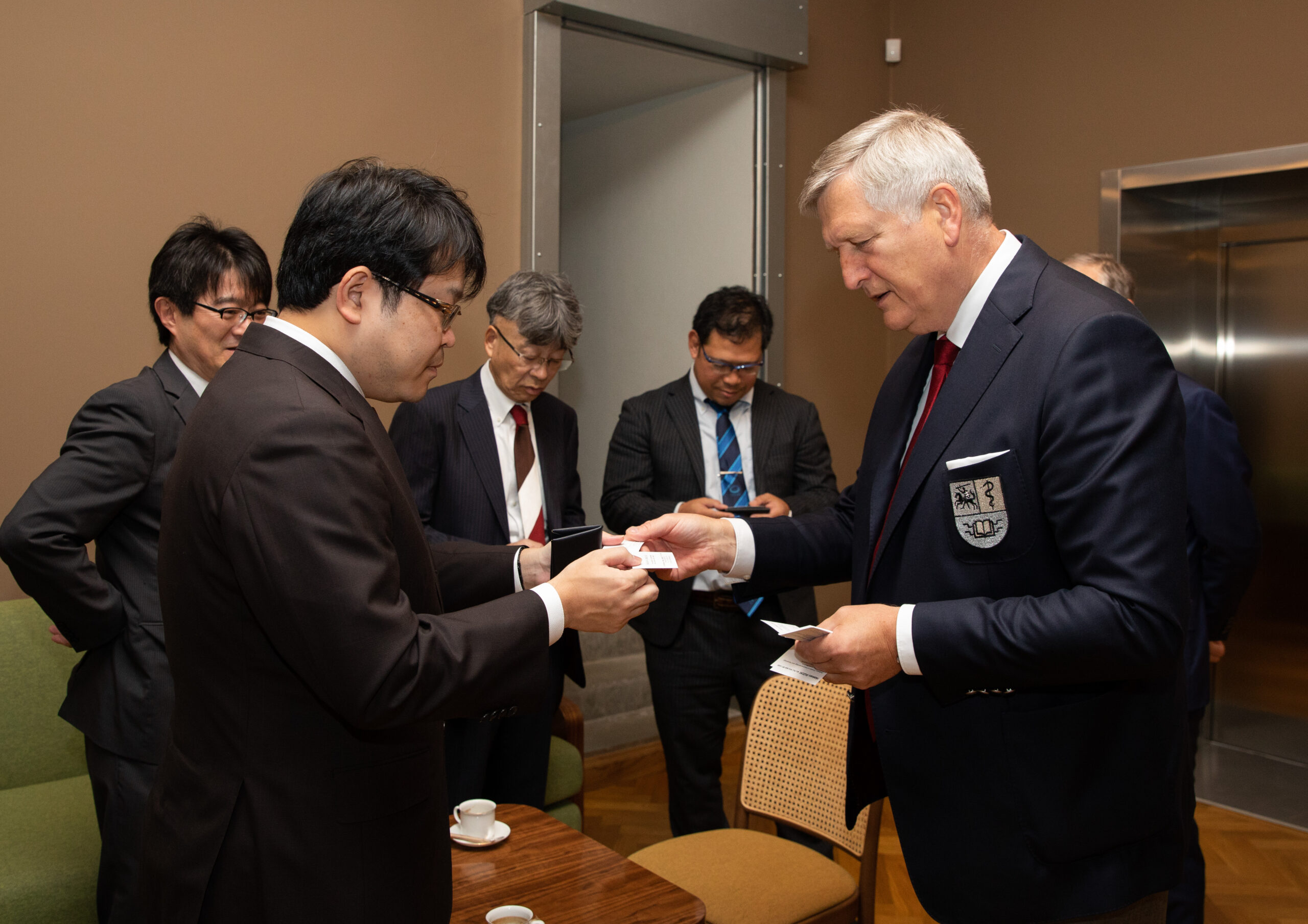LSMU Strengthens Cooperation with Researchers from Japan
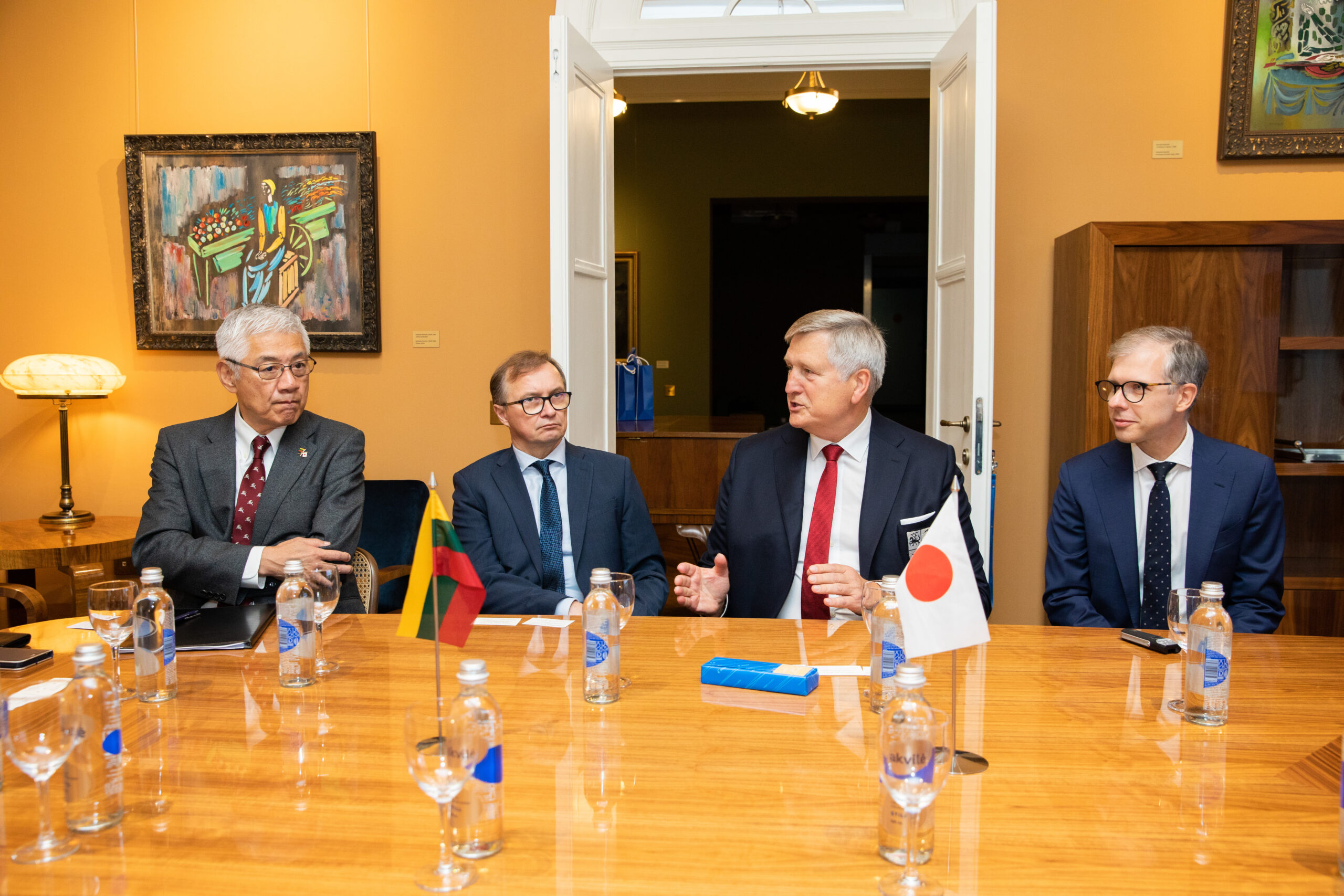
Last week, a delegation of researchers from Tokai University of Japan, including Prof. Hidekazu Suzuki, Prof. Hideki Mori, Prof. Masaya Sano, and Prof. Hideo Yonezawa, visited the Lithuanian University of Health Sciences (LSMU). They were joined by the Ambassador of Japan to Lithuania Tetsu Ozaki who came from Vilnius.
The guests were welcomed by Prof. Dr Rimantas Benetis, Rector of LSMU, Prof. Habil. Dr Renaldas Jurkevičius, Vice-Rector for Clinical Medicine, Director General of Kaunas Clinics, and Prof. Dr Juozas Kupčinskas, Head of the Institute of Digestive Research and Dean of the Postgraduate Study Centre.
The purpose of the visit from the Japanese delegation was to strengthen the existing partnership, discuss opportunities for further collaboration, and identify potential new areas of cooperation.
The researchers from both countries have been fostering mutual connections since 2021. The Department of Gastroenterology of the LSMU Medical Academy and the Division of Gastroenterology and Hepatology of Tokai University have been successfully implementing the project of the Lithuanian-Japanese programme for the promotion of scientific cooperation “The Interaction of Nutrition, Metagenomic and Molecular Gastric Microenvironment Factors in Helicobacter pylori-induced Gastric Carcinogenesis”.
In addition to the scientific collaborations, a student exchange programme has been in place between LSMU and Japanese universities, including Tokai University. The residents undertake internship placements at the countries’ teaching hospitals, acquiring international practice while enhancing their clinical knowledge.
Collaborative Efforts to Find Solutions to Reduce the Incidence of Gastric Cancer
The joint project of LSMU and Tokai University “The Interaction of Nutrition, Metagenomic and Molecular Gastric Microenvironment Factors in Helicobacter pylori-induced Gastric Carcinogenesis”, aims to investigate the mechanisms of gastric cancer development.
The study will compare the dietary habits and metagenomic factors, molecular profiles, and their role in the pathogenesis of gastric cancer in Lithuanian and Japanese gastric cancer patients against those of healthy individuals.
“Gastric cancer presents a significant issue in both Lithuania and Japan, with Japan recording some of the world’s highest rates of the disease. While the incidence of gastric cancer in Lithuania is lower than in Japan, it is still considerably high compared to other European countries. In the joint project, we aim to uncover new molecular aspects by comparing the Lithuanian and Japanese experiences. Notably, LSMU and the Japanese partner employ different investigative approaches, but the samples and the research protocol are uniform. In doing so, we are maximising the potential of both establishments,” said Prof. J. Kupčinskas, project leader.
He further noted that Japan is a valuable partner, and there is an aspiration to broaden cooperation with Japan to include additional medical disciplines in the future.
“Japan is highly advanced in health sciences, making collaboration with them exceedingly beneficial to our University. We had the opportunity to not only showcase our Clinical Department of Gastroenterology and the Institute of Digestive Research but also to introduce them to other activities. The objective is to further expand projects of this kind in the future to include other areas of importance for the University and Kaunas Clinics”.
Mutual Interest in Collaboration
Cooperation between LSMU and the Japanese universities is also supported by the Embassy of Japan. The Ambassador of the Land of the Rising Sun to Lithuania, T. Ozaki, articulated during the meeting that the Lithuanian healthcare sector is of a high standard, indicating significant potential for collaboration between the two countries.
“Health sciences in Lithuania are well advanced, which leads me to believe that Japan and Lithuania could do a lot together in this area. I hope that this meeting will pave the way for further collaboration,” Ambassador Ozaki noted.
Prof. Dr R. Benetis, Rector of LSMU, expressed enthusiasm for the positive relationship between Lithuania and geographically distant Japan, along with the increased focus on global outreach.
“LSMU has a good relationship with Japan and I am pleased that our relationship is growing. We learn many new and interesting things from our Japanese colleagues. We are also witnessing a rise in the number of Japanese students participating in our programmes, attending our summer camps, completing internship at our hospitals, and deepening their knowledge in different fields. This is beneficial as it not only broadens our international links but also attracts an increasing number of students from abroad, thereby expanding the University’s global footprint,” said the Rector of the University.

